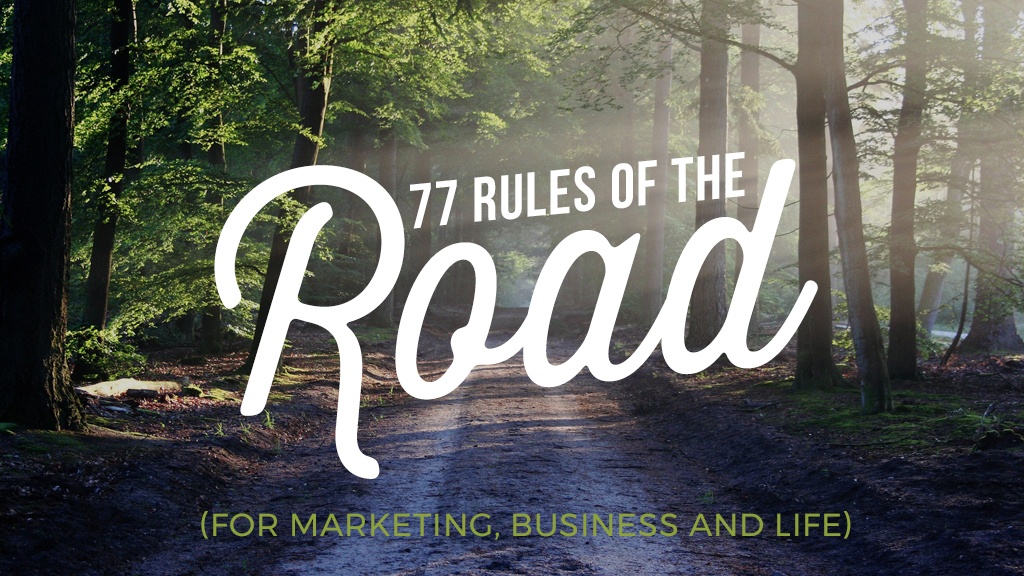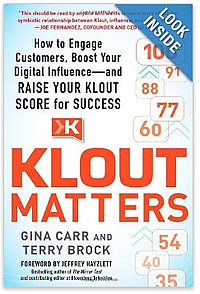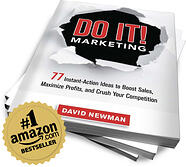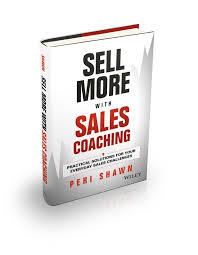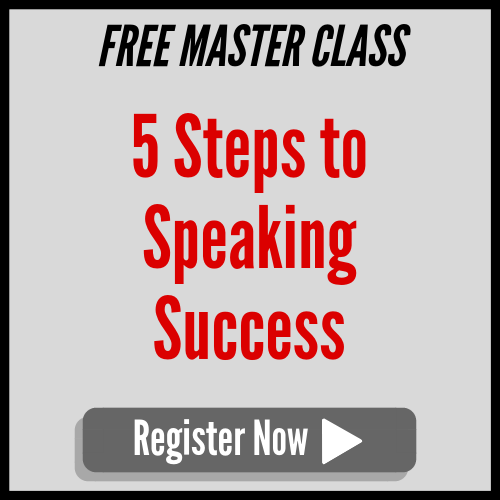David Newman is the Founder of Do It! Marketing. He’s a prolific marketing speaker and author of the #1 Amazon Bestseller: “Do It! Marketing: 77 Instant-Action Ideas to Boost Sales, Maximize Profits and Crush Your Competition.” Newman discusses the services he offers professional speakers, authors and consultants to maximize their income. He also shares some tips for speaking more profitably.
The conversation then shifts to personal marketing, including key differences between marketing one’s business vs. their career. Newman explains whether the Door-to-Door Salesman can survive today. He talks about the future of marketing and selling – and business in general. Newman tops it all off with some myths about marketing that are just no longer true, and he answers whether Kickstarters work for marketing young businesses.
Narrator: Speakers, publishers, consultants, coaches, and info marketers unite. The Speaking of Wealth Show is your road map to success and significance. Learn the latest tools, technologies and tactics to get more bookings, sell more products and attract more clients. If you’re looking to increase your direct response sales, create a big time personal brand, and become the go to guru, the Speaking of Wealth show is for you. Here is your host, Jason Hartman.
Jason Hartman: Welcome to the Speaking of Wealth show. This is your host Jason Hartman, where we discuss profit strategies for speakers, publishers, authors, consultants, coaches, info marketers, and just go over a whole bunch of exciting things that you can use to increase your business, to make your business more successful and more and more passive and more and more automated and more and more scalable. So we will be back with a great interview. Be sure to visit us at SpeakingofWealth.com. You can take advantage of our blog, subscribe to the RSS feed, and many other resources for free and speakingofwealth.com and we will be back with a great interview for you in less than 60 seconds.
Female: Sometimes I think of Jason Hartman as a walking encyclopedia on the subject of creating wealth.
Male: Well, you’re probably not far off from the truth, Penny, because Jason actually has a 3 book set on creating wealth that comes with 60 digital download audios.
Female: Yes, Jason has that unique ability to make you understand investing the way it should be. It’s a world where anything less than 26% annual return is disappointing.
Male: I love how he actually shows us that we can be excited about these scary times and exploit the incredible opportunities this present economy has afforded us.
Female: We can pick local markets, untouched by the economic downturn, exploit packaged commodities investing and achieve exceptional returns, safely and securely.
Male: I also like how he teaches you to protect the equity in your home before it disappears, and how to outsource your debt obligations to the government.
Female: And the entire set of advanced strategies for wealth creation is being offered at a savings of $94.
Male: That’s right. And to get your creating wealth encyclopedia series, complete with over 60 hours of audio, and 3 books, just go to Jasonhartman.com/store.
Female: If you want to be able to sit back and collect checks every month, just like a banker, Jason’s creating wealth encyclopedia series is for you.
Start of Interview with David Newman
Jason Hartman: Hey, it’s my pleasure to welcome David Newman to the show. He is the founder of Do it Marketing. He is a marketing speaker and author of the number one Amazon best seller, Do it Marketing: 77 instant-action ideas to boost sales, maximize profits, and crush your competition. David welcome, how are you?
David Newman: Hey Jason I’m great, it’s good to be here.
Jason Hartman: Good, and it’s good to have you coming to us today I believe from Philadelphia, is that right?
David Newman: That’s it.
Jason Hartman: Fantastic. Well, you’re into all of the same ideas that I hold so dear. And tell us a little bit about your background and how you came to write the book and we’ll kind of go from there.
David Newman: Sure. Well the book, the Do it Marketing book actually came from my entrepreneurial adventures, my own mistakes basically. You say, if you want to get investors for your company, you have to use OPM, which is other people’s money. And when you’re in our business, you learn from OPM, which is other people’s mistakes. And I have made every mistake in the book. So my background – I come from a consulting and a professional services background. I worked for ten years inside large companies, Towers Perrin, consulting companies, Oracle, Peoplesoft, technology companies. Went out on my own about 13 years ago and literally made every mistake in the book – over spending, under spending, trusting the wrong people, bad partnerships, crashing and burning a dozen different ways, took me about two and a half, three years to get my head screwed on straight and then I landed on marketing and sales, business development, that was my area of expertise, that’s what people were coming in to me for, so I dropped everything else and focused on that. I’ve had my head screwed on straight about for the last eight or nine years. But that could go at any second, I could slip back at any moment.
Jason Hartman: Right, absolutely. Okay, so the book has got 77 things. You’ve got a very large table of contents here, and well where do you want to start? I mean, I guess the first thing here is kind of understanding that it’s about your audience, your tribe, your prospect, and you say really.
David Newman: Oh, no absolutely, absolutely. I mean, it really is, well really it’s about clarity. So many entrepreneurs and even executives; when I talk about marketing, my definition of marketing is whether you’re an executive marketing your career, whether you’re a business owner, an entrepreneur marketing your business, whether you’re a nonprofit leader or a community leader marketing your cause, we’re all in the business of marketing. We’re all in the business of offering value, inviting engagement, getting people’s attention, really winning people’s attention. So the way that you do that has changed so dramatically in the last few years. Not only social media, but just attention spans and the way people interact with each other, the way that social media has given us all super connected, super publishing power; All of those things have come together to really change the game and sort of turn what we know about marketing, and sales, and business development completely on its head, completely upside down. So now there’s some new rules and the new rules are first you have to win their attention, and then you earn the chance to win their money.
Jason Hartman: Absolutely, yeah. And really, it’s really a great opportunity at the same time because all of these new technologies, these new platforms that we have access to have made it really incredibly inexpensive to start a business, to market a business, it’s no longer about just throwing huge budgets at an idea anymore, it’s really the way the market place is like you say, you have to earn their attention. And that’s rather organic for sure, and it’s a great thing because the little guy can do it and it levels the playing field in a lot of ways. But it also improves the quality of our messages and the value we have to bring to our audience or our followers.
David Newman: You are absolutely right and there’s a downside to that though as well, which is not only is all of these platforms are so abundant, all of these platforms are for the most part free, and those are the good things as you mentioned, but it’s also overwhelming. So I work with so many small and solo business owners that they say, I don’t know what to do. Should I be on Facebook, LinkedIn, should I be blogging, should I have my own radio show, should I be doing podcasting? Should I be submitting articles, should I be doing press releases? And all of this marketing overwhelm and sales burn out and people’s heads are spinning and so the secret that I share with folks, Jason, is because there are so many choices and so many platforms and so many media that we can publish our expertise and attract prospects and clients, the key, and this is what 80% of people miss, the key is that you need to choose, you need to decide on only the marketing activities and the marketing platforms that you personally find easy, effortless and enjoyable. Because if they’re not easy, effortless and enjoyable, that’s where you’re spinning your wheels, you’re not getting any traction, and you’re not going to do it.
Jason Hartman: Exactly, and it’s all about doing it. So we’ve got to figure out first of all, get clarity on the message. Any advice on that by the way?
David Newman: So, let me give you my little…
Jason Hartman: Let’s just step back one first, yeah.
David Newman: Exactly, yes. Let’s take a step back to the little imaginary white board here. And let’s draw three circles. Because a lot of times you say with entrepreneurship, and with business in general, it’s all about passion. And that is terrible advice. That is actually poisonous, deadly advice. It is not all about passion. It is one third about passion. So imagine drawing three circles on a white board.
Circle number one is what you are passionate about. What’s your topic expertise, what is it you want to share with the world, what kind of products, what kind of services do you have in your tool kit that you can get super excited about? That’s one third of the equation.
Second circle, intercepting with that. Second circle is who. Who are you excited about? Who is your tribe? Who do you want to attract as your followers, your fans, your subscribers and supporters? And when we get to kick starter, we’ll talk about that a little later, this becomes hugely important, hugely important with any kind of crowd funding platform.
Third circle then, is okay now I have what I’m excited about, what I’m passionate about. I now have my tribe. The third circle that sort of completes the circuit is what are they passionate about? What are they passionate to become, what are they passionate to do, what are they passionate to learn?
If you can connect those three circles and at the intersection of what you’re great at, what you’re passionate about, the intersection with that and your who and your tribe, and then the third overlay, what are they excited about? What are they committed to? What answers are they seeking? What problems do they need to solve? What are their urgent, pervasive, expensive problems? Where you can overlay what you do, where it’s a perfect fit and your products and your services essentially sell themselves. Because it’s the right thing at the right time for the right group for the right reason, then you have a business. Anything other than that and you’re spinning your wheels, and you’re wasting your time and you’re frustrated and sad.
Jason Hartman: Very good advice. Okay, so clarity on the message and then enjoying the platforms we’re using. What you say for the solopreneur for example, for the speaker or for the author, the person working by themselves, maybe they’ve got a VA, a virtual assistant, maybe not. Is there sort of maybe an optimum number of the number of platforms or number of things? What if somebody says I enjoy it all. I like all of the stuff or I hate all of the stuff. Is it like, pick three main things? Three main platforms that we can use?
David Newman: Well, it’s not even three main platforms, because when we talk about social media platforms or digital marketing in general, not just social media. That in and of itself might be one strategy.
So I’m going to say pick two. Pick two overall strategies out of all of the marketing strategies that are available to you. And by that I mean, let’s kind of zoom out big picture, what’s in the toolkit? There’s the phone, there’s networking, there’s referrals, there’s publicity and PR, there’s trade shows and events. There’s not an unlimited number but there’s maybe 8,9,10, maybe a dozen macro level strategies. Out of those I’m going to say pick two. I’ll use myself as a quick example. My two are internet marketing and free speaking. So I have a coaching side to my business, a small business marketing coaching side, and I have a speaking, a paid speaking revenue stream. But everything good that has ever come to me, everything I’ve ever been able to monetize everything that has paid the mortgage, everything that has been keeping me in business for ten years. It’s come from either A, an internet marketing strategy, and those have evolved of course over the last ten years, quite dramatically.
Jason Hartman: Or the last ten days.
David Newman: Well the last ten days, exactly. Or, so it’s either been internet marketing, or it’s been speaking. And when I share this with people they go oh my gosh, so you don’t use networking? I say no, I hate networking. I’m not good at networking, I don’t like networking.
Jason Hartman: And when you say networking, what exactly does that mean? You mean like going to the chamber of commerce mixer or the old fashioned type stuff?
David Newman: Well either that or meeting new people. I hate to say this, and people are surprised to hear it, but I’m sort of an anti-social S.O.B. I mean if I know you and we’re friends, I am the best friend you’re ever going to have. Super loyal, I’ll bend over backwards to help you. Strangers, I’m like eh, not so much. Not so much. And that’s just a personality thing. And so if you know your personality, if you know your preferences, if you know sort of the way that you’re wired, your marketing DNA, this concept of choosing the two or three marketing strategies that you’re going to lean into, should be easy.
So let’s kind of go down the list. If you love writing use writing strategies. If you love technology use technology based strategies, if you love speaking go out and use speaking strategies. So this show is a speaking strategy. You’re using it, Jason, to build your empire. I’m fortunate to be your guest on this episode so I’m using it to a certain extent to build my empire. This is my free speaking strategy and because we’re on the internet, it also happens to fit into my internet marketing strategy. Right? So I’m a guest and obviously you’re the host in this case, but it fits for me so that’s why we’re doing it. We’re having fun. If you love in person networking and you love shaking hands and kissing babies, then use in person strategies.
But what I see a lot is people really super committed to strategies that they hate, so people say oh I promised myself I’d make ten cold calls a day. I said oh do you like cold calling? Do you enjoy the phone? They go, I hate every second of it. And I say well that’s interesting. Why did you make this big commitment? Well because so and so who sells real estate, he said that it’s all about the phone or so and so who runs this kind of speaking business said he’s made all his money on the phone so I’m going to go do that. That’s a terrible reason to pick a marketing strategy. And again it doesn’t fit my template, it doesn’t fit my mantra, which is easy, effortless and enjoyable. They’re using those strategies because it’s easy, effortless and enjoyable for them. What you need to focus on is what’s easy , effortless and enjoyable for you.
Jason Hartman: Yeah. Makes sense. Makes perfect sense. Talk to us a little bit about, we talked about how the internet market is changing so quickly and you said it’s changed in the last ten years and I said what about the last ten days? And talk about the big thing that’s going on in the internet world now and I’m going to say that’s crowd funding. I’m going to say that’s what’s all the rage in the last several months. What are your thoughts about those platforms and Kickstarter and so forth?
David Newman: No well, absolutely. As far as buzz, as far as PR, as far as what is it that we’re reading about in the headlines and on the social media blogs, and so forth. Kickstarter and other crowd funding platforms, and there are other ones, obviously Indiegogo and a couple more. But Kickstarter is really the 800 pound gorilla in that space. Well I mean it’s awesome. It really is awesome for folks that don’t know…
Jason Hartman: For free money! How can you refuse that?
David Newman: Yeah exactly, right. Well I was going to say, for folks that don’t know, it’s not actually free money. Think about it like a public TV station and they’re doing a pledge drive. And if you pledge $35 you get the umbrella, if you pledge $75 you get the umbrella and the DVD, if you pledge $150 you get to come down to the studio and watch the show being taped. So it’s that kind of thing. It’s an online pledge service that allows you to post creative projects and receive funding via donations. So what kind of businesses is that going to work for? Kickstarter, and all the platforms, but Kickstarter in particular, has some pretty strict guidelines about what you can and cannot fund on their crowd funding platform. So they say it must be a project, meaning it has a clear end. It cannot be an open ended service, buy my stuff, shop at my store, it can’t be any of that stuff. It has to be a project. Specifically, it has to fit into one of their categories. And the categories on Kickstarter include things like art, comic books, dance, fashion, design, film, food, games, photography, publishing…so something creative. If you’re running an accounting service, or if you’re running a speaking business, it’s really not for you.
Now having said that, could a speaker, could an expert, could a consultant, could a thought leader take advantage of Kickstarter? And the answer is absolutely yes. But it would have to be for a specific kind of project. So let’s say it’s a book. Let’s say it’s a documentary film. Let’s say it’s some sort of conference or meet up or convention that you want to produce. For those kinds of things, Kickstarter is brilliant. Now here’s the other myth with Kickstarter. And you’ll see all kinds of references, oh Kickstarter has a hundred million users now and everyone’s on Kickstarter and it’s awesome.
Just like any other platform though, Jason, the myth is build it and they will come. There’s 700 million people on Facebook. If I put a Facebook post out, guess what? I’m not going to make a million dollars by tomorrow. Yes Facebook has 700 million users, am I connected to all of them? Yes and no. I mean the real answer is not really.
So one of the mantras that I share with people about Kickstarter, Kickstarter is great if you already have the tribe. If you already have the following and the subscriber base and the Email list and the social media platform and the reach and the impact and the influence that you want to have. Kickstarter is not the place to build that list, or build that influence or build that permission asset. It’s great if you can bring it with you but there are so many projects on Kickstarter, good projects, fun projects, smart projects, that don’t get funded because people think oh I’ll just post it and because there’s tens of millions of people on here every single day, they’ll just find it. And that’s not true.
Jason Hartman: Yeah you’ve got to do outside marketing. Outside of indiegogo, or Kickstarter or whatever that platform is. In order to bring people there to your project. So you’ve got to have a tribe, a following that already trusts you, is interested in your content, is interested in what you do prior to. I had Harvey Mackay on the show, and you know he’s got the funny book titles, right? And the favorite title of any book he has that I like is Dig Your Well Before You’re Thirsty. And you say you talk about the tribe and the tent. Right? So what is your saying about the tribe and the tent?
David Newman: It’s build the tribe before the tent. And this isn’t just with Kickstarter, this is with anything. So your Facebook presence is a tent, your blog is a tent, your speaking, coaching, consulting practice is a tent. You can’t do anything with any of those things until you’ve first gathered people and gathered a good number of people. Gathered a critical mass of people, which is your tribe. Then you can invite them under the tent. Then you can say subscribe to my blog. Then you can say join my coaching program. Then you can say hey, here’s my new project on Kickstarter, I’d love you to have a look at it. But if we don’t do that first, nothing is going to work. And people are great. Most entrepreneurs who are struggling are great at building a whole bunch of empty tents, and they build 5, 6, 7 tents and they go hey, where’s my people? Why aren’t people coming in? And my question to them is hey where’s your tribe, they go oh I forgot that part.
Jason Hartman: We talked about how professional speakers or thought leaders might use Kickstarter, but what are some of the tips that you have that can make one’s speaking business more profitable?
David Newman: Well, so, in the context of Kickstarter or just in general?
Jason Hartman: No, in the context of everything. Yeah, Kickstarter is far too narrow.
David Newman: Well, although some of these tips kind of go both ways, let’s answer your larger question. Well, rule number one is don’t suck. I think that’s rule number one. No, seriously, because people say well, if they’re so focused on the marketing and obviously that’s my specialty and it’s a passion of yours as well. If the core product, if your speech is not awesome, if your consulting is not terrific, if your coaching does not deliver high impact value, if you don’t have people that are just huge supporters and advocates and referral sources and fans offline, then nothing you do online is going to matter. So, the first strategy is to be good. I think it was Steve Martin that had the quote, and we see this all over Facebook and Pinterest, you know people have made posters out of it, “Be so good that they can’t ignore you.” That’s Steve Martin’s advice to up and coming comics, is how do you get famous as a standup comic? It’s be so good that they can’t ignore you. So that’s step one.
Now assuming, let’s just assume, give everyone the benefit of a doubt, that you are awesome, awesome speaker, awesome thought leader, awesome consultant, awesome coach. Then what you have to do, is you have to really build a community. And the best way to build a community is to deliver value over time. And I’ll give you an example, and I know Jason you know this guy, I know this guy, we both admire the heck out of him just for his success whether we agree with his principles or not; it’s Seth Godin. Seth Godin has been delivering massive value, probably for about 15 years now, since the late 1990’s. He has a massive following, he’s got the number one marketing blog on the internet, period. Huge following, he puts out a project, and you know he did a Kickstarter too by the way.
Jason Hartman: Oh I didn’t know that. What was his Kickstarter?
David Newman: Oh, it was fantastic. It was this gigantic book and the book was called This Might Work. And it was literally, it’s like a 50 pound book.
Jason Hartman: And his books are usually really small, by the way.
David Newman: It was like a giant, oversized, huge book. You can search on Kickstarter for Seth Godin, it’ll come right up. And he sold it out; he made a quarter of a million dollars I think in seventy two hours. Now again you say that’s awesome I want to go do that. Well first spend 15 years building your tribe the way that Seth did. Then you can make a quarter million dollars in seventy two hours. But the point is that delivering value over time, that’s the equation for trust by the way, my friends. Value plus time equals trust. And you can write that one down, take that one to the bank. Value plus time equals trust.
Jason Hartman: That’s the E equals M C squared of this world. Value plus time equals trust.
David Newman: Amen, that is so true. That is totally the theory of relativity as far as the business that you and I are in as far as speakers and thought leaders and coaches and consultants. So that is critically important. Does that happen quick? No. Can you start on that immediately? Absolutely. So that’s one of the key things that people need to focus on, is number one, have an awesome product or service, offer value, number three invite engagement, make it a two way conversation, don’t dump on people. Don’t data dump, don’t spam, don’t say hey, here’s my stuff, here’s my blog, here’s my speaking video, here’s my coaching packet. No one cares.
Jason Hartman: It’s so tempting because all of the tools that we have now with the internet and with technology, they’re so scalable and this temptation to be a mass marketer is really overwhelming for a lot of speakers and a lot of people in any business. They just want to spam the world because it’s a click of the mouse, it’s really easy to do now. But it’s so important to resist the temptation to do that because it is so frowned upon.
David Newman: Well, not only is it frowned upon, but it doesn’t work. And you can do an experiment on Facebook, and I’ve done a lot of experiments on Facebook, post something about yourself, see what kind of response that gets, and then post something about somebody else or another book or another speaker or another blog or another resource. I’m a firm believer Jason that the key to business success is what I call FLOP. And FLOP is an acronym for feature and leverage other people.
So, for example, once you and I wrap up this interview, and it’s posted and it’s on your website and all this kind of stuff, believe me I’m going to go on LinkedIn, I’m going to go on Twitter, I’m going to go on Facebook, I’m going to say you’ve got to check out Jason Hartman’s awesome show Speaking of Wealth. There’s a tremendous amount of stuff there and yes I was on the show and here’s a link to my episode. But check out all his other guests, it’s a fabulous show, you’ll get tremendous value from it.
Jason Hartman: So it’s not just about you.
David Newman: Exactly, exactly. So it’s a yes and strategy, if you can feature in and leverage other people, and sometimes I just feature and leverage other people and I don’t talk about myself at all, that gets reshared, that gets more comments, that gets more likes than any time that I do something that’s like me me me. Nobody cares about you you you, they care about them them them. So if you give them them them them, and resources and tools and value and questions and engagement and fun things that will make their lives better, and whatever your area of expertise, but will make their lives better. Believe me that’s going to get reposted, liked, shared, you will attract people to you instead of the self-centered kind of marketing that Jason, you say is so tempting, it’s crazy tempting. But that repels people away from us.
Jason Hartman: Very good points. Very good points. What do you think is coming next for our business? I don’t know, maybe Kickstarter’s sort of the big next thing but in the world of thought leadership, in the world of professional speaking, what’s kind of the future look like to you?
David Newman: Well, I think the future’s going to be a hybrid model. So in other words, speaking, platform speaking, keynote speaking, conference speaking, corporate speaking, whatever you’re doing, is going to be one of your distribution methods for your expertise. So I think people are, folks that are focused on the speaking business, I think there’s been three layers of misconception. Layer number one is that you’re in the speaking business and you’re not and really you never have been. People say well, okay so you’re in the meetings industry. Or the training industry and that’s not really it either. So the third level if we kind of abstract this to the ultimate end result here, is you are in the expertise business and whether you deliver that expertise online, offline, in person, virtual, one on one, one on many, live, internet, radio, video, podcast, doesn’t matter.
We need to attract people to our expertise. And then we need to monetize that expertise, and here’s the twist, we need to monetize that expertise in the ways that they want to consume it. So people say oh well should I have an app? Should I have like an iPhone app or an Android app or an iPad app? So I say, I don’t know. Does your audience consume information; would they value it through that distribution channel? Well, I don’t know. I don’t know is a bad answer to make a business decision. Should I got out and try to hit the speaking circuit? As if there’s a speaking circuit, right? Oh no we all just go on the secret speaking circuit, we all have a secret handshake.
Jason Hartman: The circuit, there’s a special secret website for the speaking circuit that you can just go to and suddenly you have a career.
David Newman: Exactly. Now people like Bill Clinton that get 200 thousand dollars per speech, maybe there is a secret speaking circuit Jason and you and I simply are not on it.
Jason Hartman: Fair enough.
David Newman: But for the rest of us mortals, our mortal speakers and the people who are not ex-presidents of the United States, there is no speaking circuit, there are many different speaking opportunities. But think about what’s the distribution channel that fits you, that fits your expertise, and most importantly that fits your prospect. So for example I’ve got a couple of clients that have a very full speaking calendar. They’ve got young kids or they’re getting to be of a certain age where they say I’m missing my kid’s childhood. I’m missing seeing them grow up. They’re in middle school, they’re entering high school, and I say okay well you’ve got 60, 70, 80 speaking gigs a year, what business model would you like?
And then they map this out for me very clearly what they would like and I say I have good news, and I have other news. The good news is I think we can do something with you. The other news is you should have come to me three years ago. Because it’s very difficult to throw the switch and replace that income over night if your primary distribution method was stand up speaking, living in airplanes, living in hotels, drinking cheap coffee, you have to put the foundation in place now. So that if it’s an online business, if it’s a coaching and consulting model, if it’s a membership or a continuity model, if it’s a podcasting and kind of broadcasting, narrowcasting, niche casting model, whatever it is that you want to do, you need to build that early like Harvey Mackay says. Dig your well before you’re thirsty – once you’re thirsty you go okay I’ve got to get off this crazy ride, and by then it might be too late.
So you have a great question, which is what is the future of speaking and I think the future of speaking is so diversified, that we all have to figure out those three questions. What’s the business model, what’s the revenue model and what’s the distribution channel that’s going to work for you?
Jason Hartman: Yeah, very good points. It’s much more fragmented than ever. There used to be a smaller, simpler path but nowadays the paths are many, the choices are many, the media are many and it’s just a different world. But it allows a lot of choices. And it gives people an opportunity to decide which path the like best and what platform they like best and they can pursue that. One of the things you talk about David, is how planning trumps passion. And what I love is that in your book you have this 21 day marketing launch plan, and I think that even though it sounds like it’s for newbies that want to launch a new thing, I think a lot of experienced speakers, thought leaders, consultants can really gain a lot from your 21 day plan. It’s excellent because it just reminds us not to be so chaotic and so unfocused. It provides like a focus day for different important elements. Talk about your 21 day plan, if you would, and we’ll kind of wrap up with that.
David Newman: Sure, well, thank you for your kind words about it, I appreciate it. And you’re absolutely right. It’s a 21 day launch plan, not necessarily to launch your business, but to launch your marketing in a different, focused, more step wise, programmatic kind of way. So then the beauty of it and the way I designed it, and the feedback I’ve gotten from people has been so overwhelmingly positive because it assumes nothing. It assumes that you have nothing. So nothing is assumed, nothing is overlooked, it’s a clean slate.
And as soon as people go, oh it’s a clean slate. It’s almost like it’s a sigh of relief, like oh, okay, all the craziness, all the overwhelm, all the wheels spinning, I can stop that for a second. I can pretend I have a clean slate, let me go through these 21 days of the marketing launch plan, and you’re right Jason, some people have used it as a relaunch plan. So it’s not even about launching your business, it’s about relaunching your marketing in a new focused different sort of way that’s going to give you a whole different level of momentum.
So there are days that are designed for strategy. There are days that where you’re sitting down, you’re looking at your business model, your speaking model, your revenue model. There are days where you’re doing some infrastructure build out – what should your website look like? What are the key elements of your one sheet or your speaker package? What are some of the tools that you need to have in your marketing tool kit? And then we look at how do we reach out to the world? How do we target our market? How do we find specific prospects? There are some sales tools in that 21 day launch plan as well. How do we research conferences and associations and companies that we want to speak and consult and coach and facilitate for? And then it’s also a perpetual marketing plan because once you get through the two weeks, which is the 21 days, you can then lather, rinse and repeat.
And I’ve gotten so many kind compliments about this 21 day marketing launch plan. People are just relieved and they’re excited and they’re energized about their business because they’ve finally been able to separate the wheat from the chaff, stop the wheels spinning and finally get some traction in the kinds of directions that they want to go.
Jason Hartman: Very good points. I mean, you’ve got days for developing a platform, understanding the customer or the audience or the tribe, whatever you want to call it, pricing products, branding website stuff, even rest is in there, doing articles, submitting articles, product development, social media, etcetera, etcetera. Even an organizational chart, so that’s just a fantastic tool. Really helps develop a lot of clarity and I think will give a lot of people listening a sense of control over their business and their destiny.
David Newman: Oh yes, absolutely. And that’s the key. If you can walk away from anything. Jason if people can walk away from one of your shows or a book or a conference with three things. Those three things are confidence, clarity and control of their business. I mean, that’s really the key. When people are kind of in marketing overwhelm or sales burnout, all they’re missing is clarity of what they’re doing and who they’re doing it for, confidence in their messaging and in their platform, and then control of their business, control of their finances, control of their income. You nail those three things, and that’s a great use of your time and energy. That’s a show you should listen to, that’s a book you should read, that’s a conference you should attend if you can get that out of anything.
Jason Hartman: Absolutely, absolutely. Well, David this has been very valuable. The book again, is entitled Do it Marketing: 77 instant action ideas to boost sales, maximize profits and crush your competition. And I must compliment you. On Amazon, you have 5 stars. But it’s not a small sample; that’s a 103 reviews, folks. So fantastic work there and give out your website if you would where you have other resources.
David Newman: Sure. Well there’s a ton of free goodies at my website, Jason. Everything can be found at doitmarketing.com. There’s free ebooks, there’s a blog up there, there’s a podcast, there is an app because it’s my people like apps and maybe you like apps too. And then specific information about the book and then some resources that are connected to the book are at doitmarketing.com/book.
Jason Hartman: Excellent. Good stuff. Well David Newman, thank you so much for sharing your experience and wisdom with us today and keep up the good work. And, as Nike says, just do it folks. That’s a great point. David Newman, thanks for joining us.
David Newman: Thank you.
Narrator: This show is produced by The Hartman Media Company, all rights reserved. For distribution or publication rights and media interviews, please visit www.HartmanMedia.com or email media@HartmanMedia.com. Nothing on this show should be considered specific personal or professional advice. Please consult an appropriate tax, legal, real estate or business professional for individualized advice. Opinions of guests are their own and the host is acting on behalf of Platinum Properties Investor Network, Inc. exclusively.
Transcribed by Ralph
See the original podcast show notes page here at Speaking of Wealth Show.



